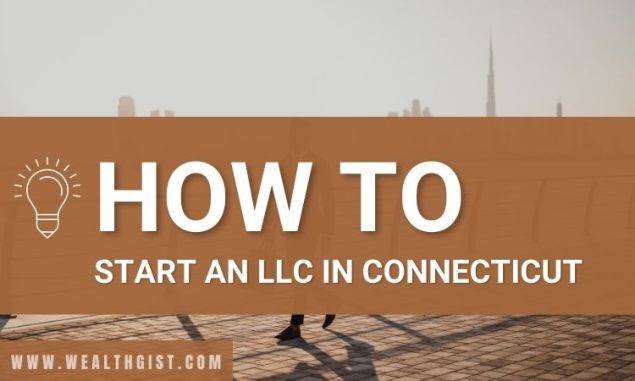401(k) retirement account is the most common type of retirement account, but the ones that investors choose might not always be the best investments. Here are some other options that can help you save more in retirement and help future generations.
What is 401 k retirement plan
401 k Retirement – A 401(k) retirement account is an investment plan offered by employers through which employees are given a tax-deferred income stream for the purpose of investing in their retirement. It’s a government-regulated retirement program that offers an IRA or Roth IRA and other investment classes like mutual funds, annuities, and stocks.
A 401(k) has been the most popular employer-sponsored retirement plan in the U.S. for decades. While there are plenty of pros to investing and growing your savings in a 401(k), not all employees are offered the same plan.
If your current employer’s plan doesn’t meet all of your needs or offers limited investment options, it might be time to save for retirement on your own. Many plans have fees and early withdrawal penalties, so explore your options and find 401(k) alternatives that work best for you.
Alternatives To A 401(K) Retirement Account
1. Traditional IRA
If you’re unfamiliar with a traditional IRA, it’s an individual retirement account that offers a large selection of investment options to choose from rather than 401(k)s, and you have control over your account and investment costs. This makes them the most popular 401(k) alternative as people have the ability to contribute up to $6,000 a year and defer tax payments until retirement.
In order to calculate how much tax you will owe, you will need to know the current value of your account. it may be smart for you to open an online account with a brokerage firm like Charles Schwab so that you can see the price information up-front.
There are many IRA investment opportunities, including mutual funds, real estate, cryptocurrency, and stocks. The biggest takeaways of an IRA plan: you can enjoy tax breaks on your current contributions and pay taxes when you withdraw based on retirement income.
2. Roth IRA
A Roth IRA is a retirement account that functions differently than a traditional 401(k). In a regular 401(k), money is placed in the account with interest, later taken out when the individual retires and begins to withdraw funds. With a Roth, however, all the money goes in at once and interest isn’t available until much later.
With a Roth IRA, a person can forgo their tax break on contributions and withdraw money tax-free at retirement. This may be appealing if you’re expecting a steady increase in income throughout your career and are interested in saving on future taxes.
In other words, if you’re a high earner and expect that your income will increase by retirement, passing on a tax break now may be a better option than paying taxes at a higher income later.
Roth IRAs allow you to include your account in inheritance to build generational wealth. However, these accounts do have an annual contribution limit of $6,000.
3. SEP IRA
SEP or “simplified employee pension,” IRAs are available for self-employed individuals. If you’re a freelancer and still work at another company, or if you own your own business, this may be an option for you.
With this plan, you can contribute more than other IRAs. Instead of a dollar amount like the $6,000 limit, you’re limited to 25% of your business earnings. Therefore, if 25% of your earnings is more than $6,000 per year, you can gain interest on a larger sum of money.
4. Cash Balance Defined Benefit Plan
Cash balance pensions are opportunities for the self-employed or freelancers to increase their retirement savings if they’re falling behind. Investors can contribute a defined amount of their annual earnings plus interest.
People can choose a fixed or variable annual interest rate and have the option of withdrawing savings as an annuity at retirement. Contribution limits vary by age and income, and investments are professionally managed without participant input.
5. Fixed Annuities
The fixed annuity market is a flourishing marketplace that offers a variety of investment choices at varying risk levels. If you’re looking to make some money while minimizing your risk of losing it, you should seriously consider investing in a fixed annuity.
6. Variable Annuities
Variable Annuities are generally a good option for anyone who wants to invest in the stock market but is not comfortable with the idea of investing their money. They offer guaranteed returns for life and can be customized to provide different benefits. Some of these benefits include lower fees, no risk, and tax-deferred investment growth.
7. Investment Brokerage Accounts
A brokerage account is a very flexible option that gives individuals the freedom to invest in and withdraw from many kinds of investments. There are no age or contribution restrictions, which allows people to shop for the opportunity with the largest yield for their investment.
However, this plan isn’t a retirement account and offers no additional tax benefits. You must manage your own account and make the most of your investments. It’s wise to consult a financial advisor when deciding where to invest your money.
8. Health Savings Account (HSA)
Health savings accounts (HSAs) are similar to your personal savings account. This fund is used to take care of your medical bills. The money in your HSA is owned and controlled by you, not your employer or insurance provider.
Health savings accounts can be effective tools for saving for retirement. HSA funds are permanent and transferrable
It is better to save your HSA funds as part of your retirement plan.
9. Real Estate
Are you planning on retiring and running out of money to fund your retirement? A low-risk investment in real estate may provide a great solution for achieving your goals. It is well-known and accepted by most researchers that the value of landed properties increases with time.
Real estate investment proves a good return on investment if it is done carefully and professionally. For further knowledge read How To Invest In Real Estate And Earn Big.
10. Invest in a Flourishing business
Building a business is by far the most profitable investment that anyone can consider attempting today. But in this situation, you already have the money required; all you need is a high-potential business.
You can invest in a successful business and save your profits towards your retirement. It is safe and promises a brighter and more rewarding future.
CONCLUSION: 401 k retirement plan
401(k)s are one of the most important financial tools for people who are just starting to build their nest eggs. In fact, some people would say that it is essential to have a 401(k) in order to be successful in the workplace. But there’s a lot more to it than just putting your money to work.
There are plenty of other alternatives to 401(k)s available which can save you time, stress, and money when it comes to retirement planning. Plus, they can get you on the path toward an IRA or Roth IRA as well.
When it comes to your savings and retirement fund, making the right choice for your future is important. With various options and alternatives to the 401(k), there’s bound to be a prospective plan of action that works for you.
Author Bio: Lauren McDermott is a health, wellness, and lifestyle writer who encourages others to kickstart their career goals and think ahead for retirement planning. When she’s not at her desk, she spends time with friends, family, and her dog Lilly.









